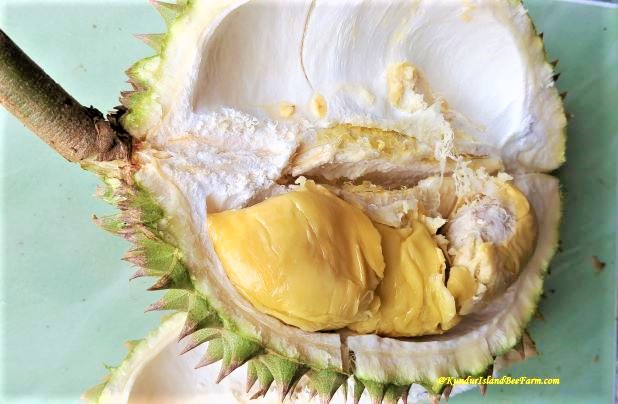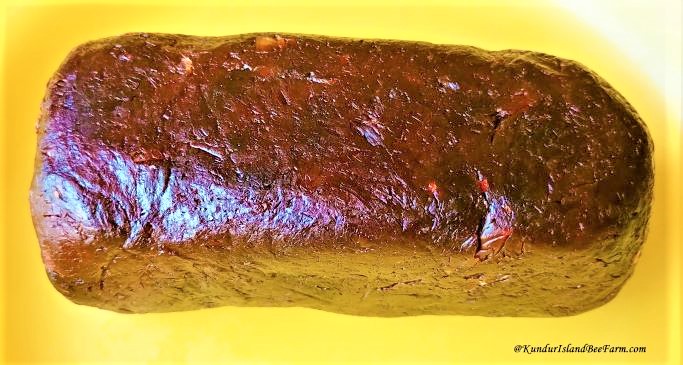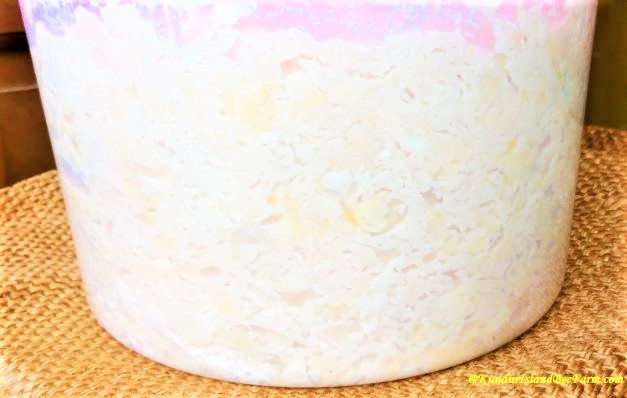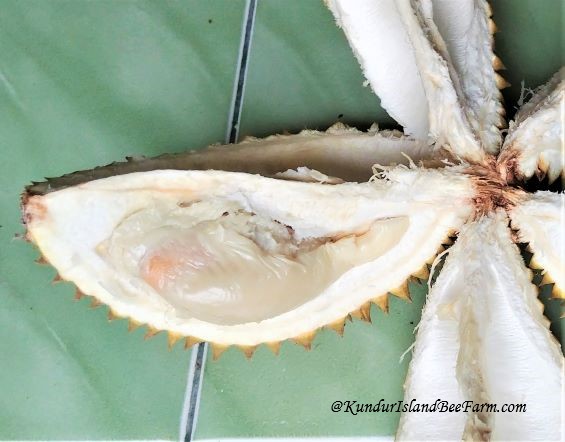Our Durian Farm is located on the rocky hills of Bukit Sialang (Giant Bee Hill) in Kundur Island, Riau Archipelago, Indonesia. The durian trees grew among granite rocks and are mature trees of around 40-50 years old.
We practice strict traditional farming techniques without the use of harmful man-made chemicals, such as herbicide, pesticide, fertilizer, growth hormone, antibiotics, etc. in all our farms.
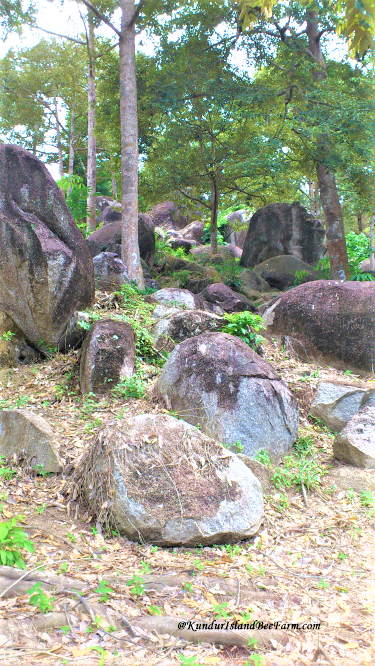
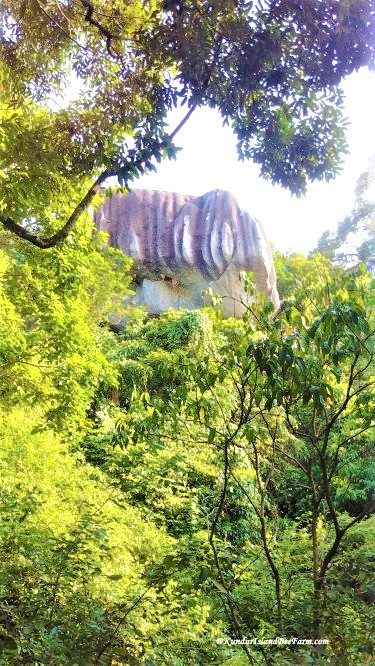
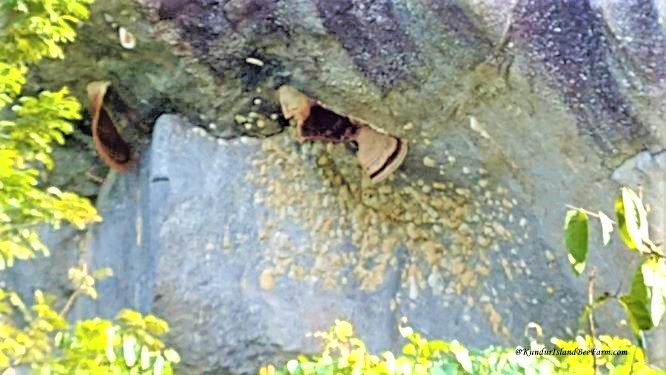
Tips
There is a common misconception that durian fruits that fell down on their own have reached the right ripeness. In our experience, that is not always so. The best way to tell if a durian is ready to eat is to do the smell test: Hold the fruit with both hands stalk down and bring the bottom of the durian close to your nose. If there is no smell, the fruit is not ripe and should not be opened yet. It is safe to do the smell trick on our durians but, unfortunately, it may not be safe elsewhere due to the widespread application of chemicals to prolong shelf-life and freshness.
Lempok
Lempok is a popular local sweet delicacy made from roasted durian meat mixed with sugar over small fire for a few hours. Our version of lempok has much less sugar than others since we do not view sugar as healthy when consumed in big amount.
Tempoyak (Fermented Durian)
Tempoyak is fermented durian meat. It can be eaten on its own but is usually added into fish/meat dishes, mixed into pancakes, etc.
